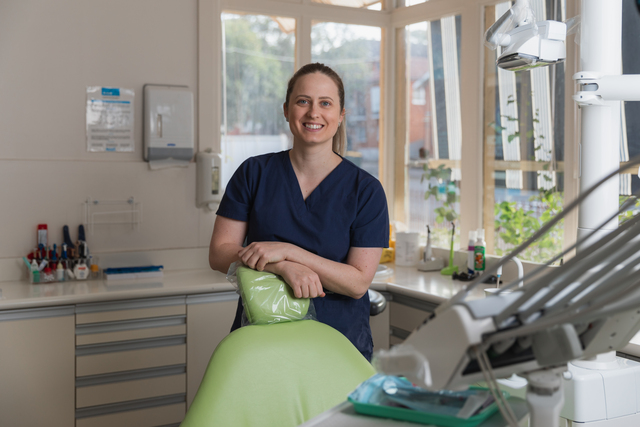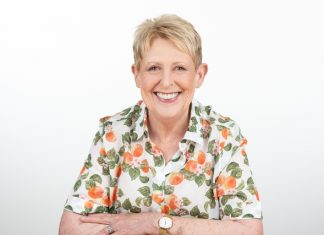The focus with new babies is often on breastfeeding, developmental milestones, and sleep, with new parents left in the dark about dental care for their bub.
So the Australian Dental Association (ADA) is reminding Australian parents of the oral hygiene basics for children: brush twice a day, floss daily, eat a diet low in sugar, and see your dentist regularly.
This might seem obvious, but the stats surrounding children’s oral health are alarming: 34 percent of kids aged 5 to 6 years have had decay in their baby teeth; 70 percent of kids aged 9 to 13 consume too much sugar; and 27 percent of children aged 5 to 10 have untreated tooth decay.
The ADA says a lack of infant oral healthcare information might contribute to these stats, so what are the oral healthcare basics for babies and toddlers?
Before babies get their teeth, parents can wipe their baby’s gums with a clean, damp muslin cloth.
Once the first tooth arrives, they can use a soft-bristled toothbrush and water to brush.
“Toothpaste doesn’t need to be introduced until 18 months unless otherwise advised by your dentist,” ADA oral health promoter and dentist Dr Mikaela Chinotti said.
“At this age, start using a children’s toothpaste that includes fluoride, an important ingredient that helps to strengthen and protect the teeth from tooth decay.
“After brushing, your child should spit out the toothpaste foam, but they don’t need to rinse their mouth with water.
“Children are likely to swallow more toothpaste by rinsing than by just spitting.
“This also leaves a layer of fluoride toothpaste on the teeth, exposing them to the benefits of fluoride for longer.”
For parents finding the whole brushing routine fraught, there are numerous phone apps with songs to help engage your little one and to help them brush for the recommended two minutes.
Alternatively, play a song your child likes for a two-minute period.
Two minutes of brushing is not yet needed for babies with only a few teeth.
In addition to brushing, flossing is recommended from when your baby has two teeth that touch side by side, which is often around age 2.
Your dentist can show you how to floss your child’s mouth and what to use. Flossettes are great options for little mouths.
The ADA says night-time drinks are an area of confusion for some parents.
The body makes less saliva during sleep, so a bedtime bottle of formula or milk may be left on the teeth longer.
If this occurs repeatedly, it can cause tooth decay.
So if you give your baby – aged over 6 months – or toddler a bottle in bed, only put water in the bottle. Never give juice or soda.
Your baby’s first dental visit should ideally be when their first tooth arrives in the mouth.
It’s best that their first visit is not due to tooth pain, as this may cause anxiety around future dental visits.
For the first few dental appointments, some parents find putting their little one on their lap the most comfortable and calming solution for everyone.
At these early dental appointments, the dentist will look in your child’s mouth to examine the teeth and give you advice on oral hygiene techniques, tooth eruption, habits, and diet.
For more information on this and other oral health topics, visit teeth.org.au.
There are pro-tip videos on caring for your infant’s oral health and teething babies.







